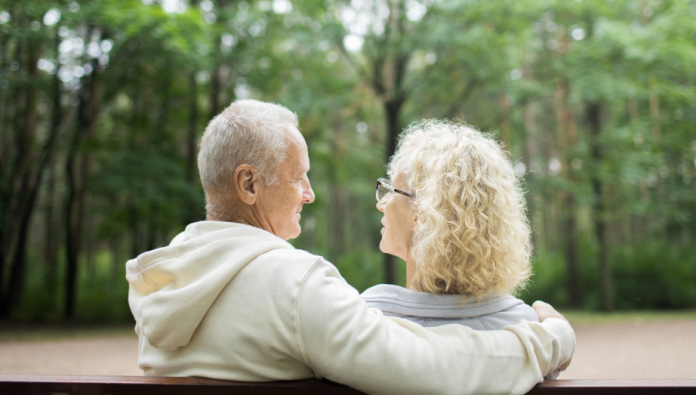After your loved one dies, your life will turn upside down. Whether that person was your spouse, boyfriend, or girlfriend, and no matter how long you’ve been together, your whole life will change. What you planned to do together in the future has suddenly gone. Christmas and New Year will never be the same again, and the times you spent together before will be the only memories you will cherish. However, life must go on with the longing for intimacy and love.
Dating after losing a loved one is one of the hardest things you can do in life. You are trying hard to open yourself up to another person, knowing that you may experience that loss again. You may have the feeling that you are betraying the memory of the person you love. You may feel unfair to the new person because they aren’t the person you intended to spend your life with. All these are normal feelings. Dating after death is a big emotional battle; however, you can overcome all these negative feelings and survive.
What You Need to Know About Dating After losing someone
The first thing you need to know is that there is nothing called “the right time.” In the beginning, you will almost certainly be overwhelmed with loss because you feel there is no room for dating. But over time, this feeling will vanish gradually, and good times you remember will turn to memories, and you start to have that feeling that you’re ready to date—your heart will start to beat when a man on the street makes lingering eye contact, for example. This could be months or could be years. Grief is a characteristic feature, and it differs from one to another. For some people, especially older ones, who suddenly find themselves alone for the first time in years, a loss may lead to depression. For others, losing someone stimulates them to maintain life. So there is no definite “right” thing to do when it comes to dating.
Once you start dating, one question arises: “how open should you be to your date?” It’s difficult to answer since every relationship is different. However, you need to be honest with your new partner. That doesn’t mean identifying yourself as a widow on your profile or discussing the funeral on the first date. But when a relationship comes up, you should be honest. Part of being honest is to tell your new partner about your loss because they have a right to know that you have been hurt and you still have sorrow and memories that might be different from their experience.
You should tell them about your loss because, in some ways, there is no certain time for “getting over it.” Dating doesn’t mean you stop loving or missing a person and start loving another. Even if you are happy with your new partner, memories with your old partner can return. This is normal. We are humans, not robots. We can’t lock our emotions and feelings. It’s more complex than that.
Also, it is not fair to make comparisons between your deceased and new love. But your new partner should also be willing to accept the fact that there will always be part of you dealing with loss, and they won’t be a perfect fit for that hole because no two people are the same. Humans are complicated and difficult beings, and every relationship comes with its own tension. Always be open with what you are feeling, and respect your partner’s jealousy—a perfectly human behavior—together, you can work things out.
However, your new love should understand that you can’t change your past; your past is part of you, and you can’t simply give it up. You have been honest with them from the beginning. They should be there to help you overcome these negative feelings and emotions and not stress you more.
The most important thing is that you have a right to be happy. Being happy again with someone else doesn’t necessarily mean that you are betraying your old love. After all, they loved you, and part of love is wishing happiness for their partner. We are social creatures. Life never stays the same, life has always been about the rise and fall, but in the end, you are a human being, a creature who needs love and care.
Some people think it is romantic to never date again. And It is fine if you decide so because you have the right to live your life the way you want it to be. But it isn’t a betrayal, nor is it a failure, to feel that first romantic spark with someone else, to date, and to fall in love again after the death of your partner. You can move on if you are honest with yourself and your partners. The past will always be a part of us, and that doesn’t mean the future is blocked off.


The article provides a balanced view on the complexities of dating after losing a loved one. It acknowledges the emotional struggles while also emphasizing the importance of being honest with oneself and with new partners.
The point about there being no ‘right time’ to start dating again resonates with me. Each person’s grieving process is unique, and it’s important to respect that individuality.
Indeed, grief manifests differently for everyone. For some, jumping back into dating may be a way to cope, while for others, it may take years to feel ready.
The notion that being happy again isn’t a betrayal is a comforting thought. It’s a reminder that life continues and that finding new happiness is a natural part of the human experience.
It’s insightful that the article mentions the importance of not making comparisons between the new partner and the deceased loved one. This can help prevent unnecessary tension.
The article’s discussion on being open about one’s loss in a new relationship is critical. Transparency can build a stronger foundation for the new relationship.
Yes, being upfront about past experiences and current emotions can help both partners navigate the relationship more effectively.